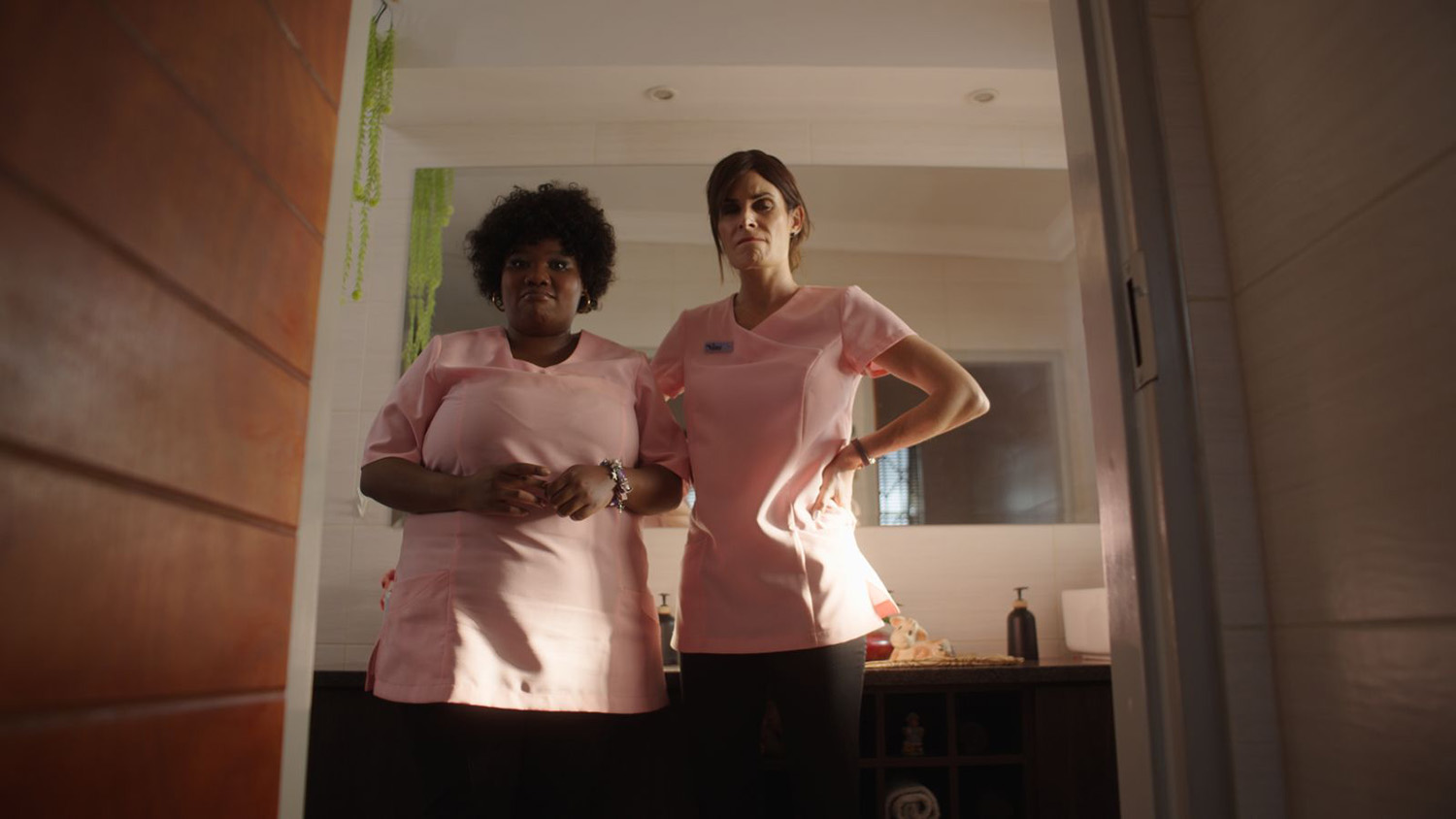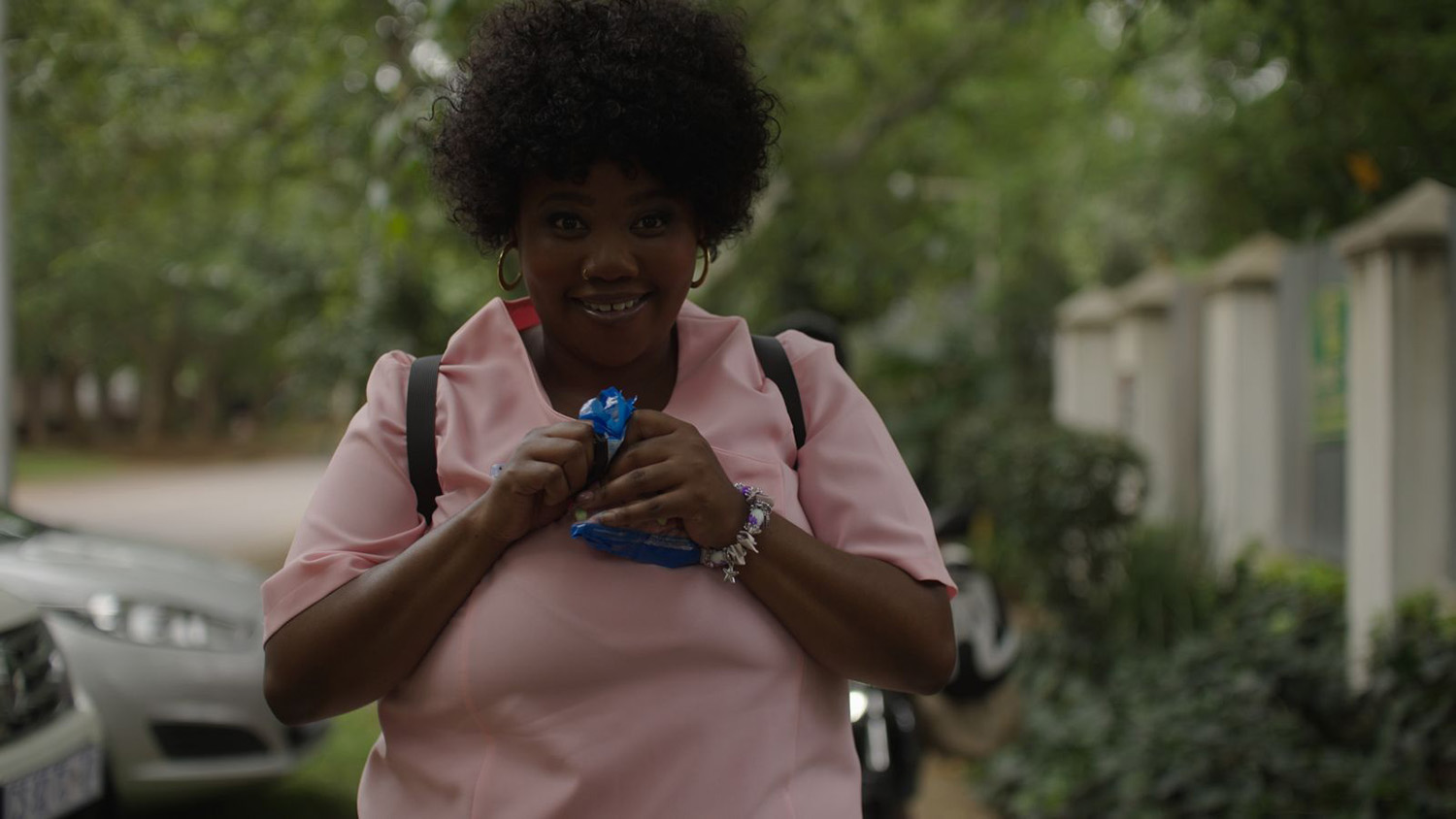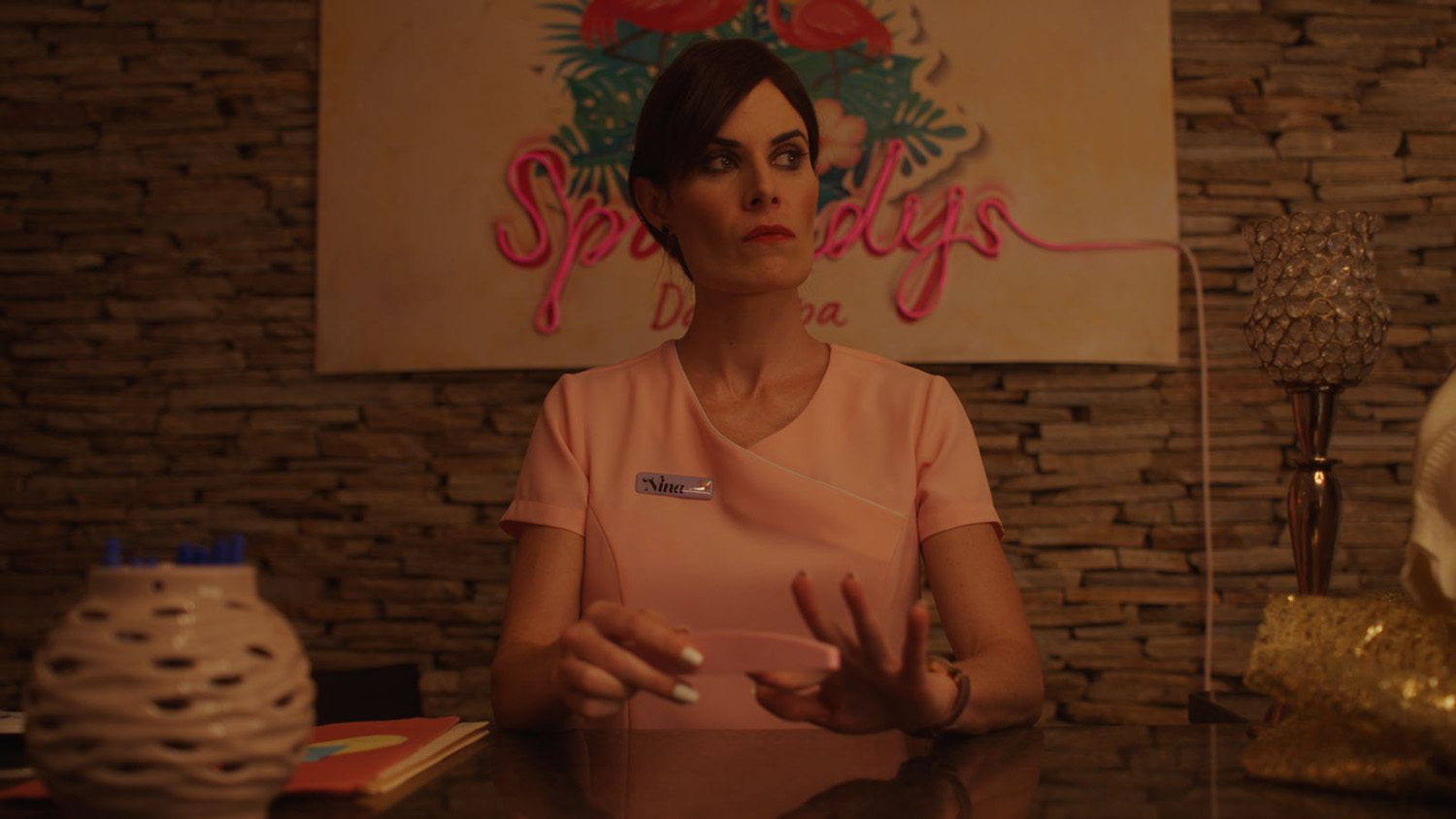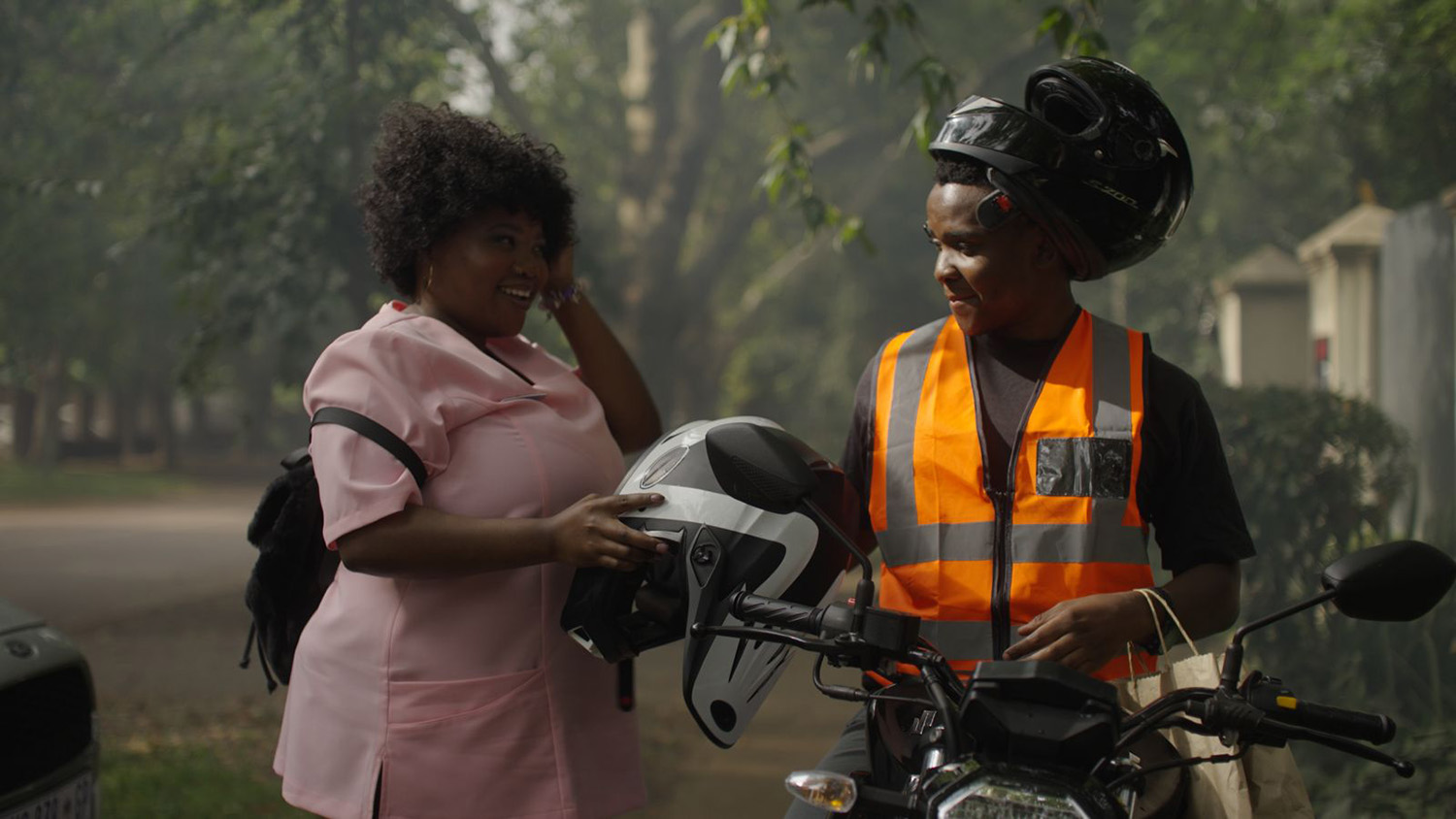



Rising filmmaker: Liewe Dudu
Arriving late at the low-cost spa in Pretoria where she works, bubbly beauty therapist Dudu is confronted with chaos when she discovers a dead client on one of the treatment beds. With time running out before the spa’s annual inspection later that morning, Dudu enlists her best friend, Lerato, to move the body. But then she discovers their boss, Nina, had allowed her undertaker boyfriend, Lappies, to store the body with them temporarily. The spa girls must work together to conceal the body and get everything shipshape before the taciturn inspector’s arrival.
Director Lydia Anne Stander, who also wrote the script, elaborated on her Silwerskermfees comedy short, Liewe Dudu.
How did the idea for Dudu’s story come about?
The idea struck me while lying on a spa treatment bed, half-dozing. I wondered: What if the therapist discovered her client was dead? It reminded me of an episode of John Cleese’s Fawlty Towers, ‘The Kipper and the Corpse’. As soon as I got home, I jotted down the screenplay’s skeleton and developed it from there.
The main characters are wonderfully different, and relatable – I think we all know a Dudu and a Lerato and (especially) a Nina … Tell us more about the three main characters and their purpose in the story.
Having visited many different day spas and spoken to dozens of therapists, I put Dudu together as an amalgamation of women I’ve met. She has flaws, but you can’t help enjoying this loud and proud woman who embraces her natural beauty and curves. Dudu is confident, resourceful, bold and at the centre of the story.
Lerato is the childhood friend that we all have, who knows us better than anyone – and loves us anyway. She is Dudu’s conscience and wingman.
Nina represents the authority that Dudu has an issue with. But Nina puts on a tough act to cover her insecurities and fragility.
Is there a character that you relate to more than to the others? I’m curious to know whether, as you were writing this, you channelled yourself or someone you know, in Dudu, or perhaps in the other characters?
While Dudu has verbal diarrhoea and is generally blithe, her subtle superpowers are evident: she intuitively knows what people need and can find a way out of almost any situation. In contrast, I am an observer rather than a talker but, like Dudu, I am sensitive to people’s needs and a creative problem solver.
What are some of the main themes in this story?
Liewe Dudu underwent several iterations before reaching its final draft and some elements didn’t make the cut. While the film is primarily a comedy, I try to weave in subtle commentary on relevant issues. I hope viewers will pause and reflect, perhaps sparking conversations around these topics.
In one fleeting moment, I touched upon the gruelling working conditions that often burden women, like unfair hours. True to her nature, Dudu steps in as Lerato’s advocate, determined to improve her friend’s shifts. Through laughter and camaraderie, Liewe Dudu becomes more than entertainment – it becomes a mirror reflecting the complexities of the lives of working women.
Gugu Madlabane is terrific as Dudu. How did her casting come about?
Gugu is Dudu! She is exactly as I imagined Dudu to be, and someone suggested her for the role while I was still busy with rewrites. A different actress was initially cast during the audition process, but she had to drop out after getting appendicitis. We then contacted Gugu, she sent a great audition tape and we cast her as Dudu three days before we started filming. I would love to have a run at making this into a series with Gugu.
Could you tell us more about the inspiration for the set design – was it informed by personal experience? Or perhaps a deep-rooted love (or hate) of the colour pink?
I had such fun with the set design. It was always going to be a tacky, Las Vegas vibe with kitsch, over-the-top decor. I like pink, but nobody likes that much pink! We totally transformed the spa into a surreal pink nightmare.
What has been a highlight of this project for you?
It’s been a huge privilege to be allowed to bring an idea to life. I felt spoilt on set as the director and had amazing support from the production team. I thoroughly enjoyed every minute on set. I can’t wait to do it again!
Did being the writer make your role as director easier?
Absolutely. When you write a story, it’s a part of you and I visualise everything that I put on the page. It comes naturally to share my vision, and I like to spend as much time as I can with the actors before we get on set, so that we can unpack the story and get their input on the characters. I think it allows everyone to feel more confident and be more efficient when on set.
What advice would you give other filmmakers thinking of making a short film?
I have made two short films and have learned so much. My advice for other filmmakers: you will be under pressure and time is always a big factor. Be prepared and visualise each scene so you don’t waste time on set. When writing your screenplay, think of how it will work practically and limit yourself – fewer characters or combined characters, fewer locations and clever use of the same sets will also help you stay within budget.
Filmmaking is a team sport. Even if you are the director, you can’t make a film without a team of people; be respectful and kind to everybody and value their work.
Any funny set stories?
I had to ask Hannon if he was okay with the reference to him and his brand in the film. He asked to see some of it, and he thought it was hysterical. Not only was he happy to give his permission; he said that if ever we want to include him in the film, he would love to have a part in it.
